Proper Insulation Reduces Strain On Air Conditioning System
Temperatures are beginning to climb, leaving some homeowners searching for ways to keep their houses cool and energy costs down. For many peoplethe solution is simple—improved attic insulation.
During the summer, infiltration of outdoor heat into the home can cause the air conditioner to work harder, resulting in higher electricity bills. To ensure your home is ready to beat the heat, you should increase your insulation during the spring.
Why is attic insulation important?
Your home’s insulation provides a number of benefits including moisture and humidity control, ensuring proper ventilation, and, most importantly for your air conditioning system—heat flow resistance. The more heat flow resistance your insulation provides, the less work your air conditioning system will have to do, and the lower your heating and cooling expenses will be.
According to the U.S. Department of Energy, heating and cooling account for 50-70 percent of the energy used in the average American home, but with improved attic insulation, homeowners can save up to 20 percent on utility costs.
For optimal energy efficiency, your home should be insulated from the roof down, including your walls, ceilings, floors, attics and even your ducts. However, your attic is one of the easiest places to add insulation in an existing home.
How do I know if my home is properly insulated?
There are a number of indicators that your home may need additional attic insulation, but here are a few common signs to watch out for:
- You live in an older home — Because energy codes have gotten progressively stricter throughout the years, older homes tend to be poorly insulated. If your home is more than 20 years old, you should have it inspected—even if you haven’t noticed any of these signs of poor insulation.
- Temperatures fluctuate from room to room — If you find that some rooms in your home are inexplicably colder or hotter than others, and those rooms are well ventilated, then the problem is likely poor insulation.
- Your utility bill has skyrocketed — There can be a variety of outside factors that result in a surge in your energy bill from month to month, but if you see a huge increase in the last few years, your insulation may no longer be at optimal levels.
How much insulation does my home need?
The amount of insulating material you’ll need depends on your climate, type of heating and cooling system and part of the house you are insulating. Insulation is rated in terms of thermal resistance, or R-value, which tells you how resistant to heat flow it is. Higher R-values mean greater insulating power.
For most areas in north Florida and south Georgia, the R-value recommended by the U.S. Department of Energy for attics with no existing insulating material is between R-30 and R-60. If the attic already has three to four inches of insulating material, then it is advantageous to add an additional level between R-25 and R-38. An R-value of R-38 is recommended for most homes, which translates to about 12 inches of insulation.
If you have any questions about maximizing your home comfort system’s energy efficiency with proper insulation, contact Barineau Heating & Air at 850-580-4029 or 229-495-6599.




